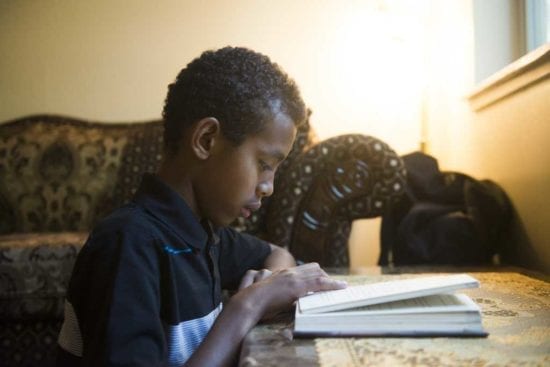Personnel de l'école
Le personnel de l'école est composé des personnes qui travaillent à l'école. Tous les membres du personnel des écoles aux États-Unis sont tenus de créer un environnement d'apprentissage sûr et inclusif pour les élèves. Cela inclut les professeurs, le personnel de soutien et les administrateurs qui s'efforcent d'aider les élèves à réussir.
Surintendante
Le directeur dirige de nombreux directeurs et écoles. Les surintendants prennent les décisions concernant les politiques, les programmes (ce que les élèves apprennent en classe) et les règles du district. Comme les surintendants travaillent pour de nombreuses écoles, ils ne se trouvent peut-être pas dans le même bâtiment que ton enfant.
Directeur et directeur adjoint
Le directeur est l'administrateur en chef d'une école. Ils sont chargés de superviser tous les professeurs et les autres membres du personnel de l'école dans le bâtiment de l'école. Le directeur est le chef des professeurs. Le directeur n'enseigne pas aux élèves. Au lieu de cela, le directeur aide les professeurs, contribue à la discipline et dirige l'école.
Dans les grandes écoles, il y a aussi des directeurs adjoints. Les directeurs adjoints (ou directeurs adjoints) aident le directeur. Aux États-Unis, si un parent a des problèmes avec un professeur, il en parle généralement au directeur.
Professeurs
Les professeurs travaillent en étroite collaboration avec les élèves et leurs familles au quotidien. Les professeurs sont les personnes directement responsables de la formation des élèves. Ils organisent des activités pédagogiques dans les salles de classe. Les professeurs des plus jeunes élèves enseignent de nombreux sujets. Pour les élèves plus âgés, il y a des professeurs pour chaque matière.
Aux États-Unis, les familles font preuve de respect pour le personnel scolaire en travaillant avec les professeurs pour éduquer et soutenir leurs enfants. Les professeurs rencontrent les familles plusieurs fois par an pour parler de leurs élèves. C'est normal et cela ne veut pas dire qu'il y a un problème avec ton enfant.
ESL enseignants
ESL est l’abréviation de anglais langue seconde. Certaines écoles ont des enseignants d’anglais langue seconde pour aider les enfants nouvellement arrivés qui apprennent à parler anglais. Les enseignants ESL ont généralement des cours spéciaux quelques fois par semaine juste pour les apprenants de l'anglais. Les professeurs ESL viennent parfois dans les classes ordinaires et aident les apprenants de l'anglais là-bas.
Aides
Dans de nombreuses écoles, des aides aident les professeurs en classe. Certaines classes disposent de plusieurs aides, d'autres n'en ont aucune, selon les besoins des élèves. Les aides viennent souvent en aide à un élève qui a des besoins particuliers ou qui a des difficultés d'apprentissage. Les aides aident également de petits groupes d'étudiants à terminer leurs travaux. Par exemple, ils peuvent aider votre enfant à apprendre l'anglais, comme un professeur ESL.
Infirmière
Les infirmières travaillent dans les écoles pour assurer la sécurité et la santé des élèves. Si un élève ne se sent pas bien, le professeur peut l'envoyer chez l'infirmière. Si l'étudiant est malade, l'infirmière décide de le renvoyer chez lui jusqu'à ce qu'il se sente mieux.
Aux États-Unis, prendre soin de la santé mentale des élèves est un élément important de la scolarité. Parfois, les élèves ont du mal en classe parce qu'ils ont du mal à s'adapter à la vie aux États-Unis. Ils ont peut-être besoin d'une aide supplémentaire parce que c'est très difficile de venir aux États-Unis depuis un autre pays. Les infirmières peuvent aider les élèves qui ont du mal à s'adapter.
Conseiller
Les conseillers scolaires répondent aux besoins scolaires, personnels, sociaux et professionnels des élèves. Ils dirigent des programmes qui aident les élèves à réussir leurs études. Les conseillers peuvent être très utiles aux familles immigrées. Ils peuvent aider ton élève à s'adapter à sa nouvelle école. Ils sont peut-être au courant de l’existence de programmes spéciaux pour les étudiants réfugiés.
Les conseillers aident parfois aussi aux soins de santé mentale et physique. Un conseiller est une bonne personne à qui parler à l'école si tu penses que ton élève pourrait avoir besoin d'une aide supplémentaire.
Travailleurs sociaux
Les travailleurs sociaux en milieu scolaire offrent des conseils en santé mentale aux élèves et aux familles. Ils mettent également les étudiants et les familles en contact avec les ressources communautaires. Les travailleurs sociaux aident également les élèves immigrés à relever les défis à l'école et à la maison.
Personnel de bureau ou secrétaires
La secrétaire de l'école aide le directeur et travaille souvent à la réception du bâtiment de l'école. Parfois, les secrétaires sont appelées « personnel de réception ». Quand tu viendras à l'école de ton enfant, tu devras peut-être signer un papier pour t'enregistrer. Cela contribue à assurer la sécurité des élèves. La secrétaire t'aidera à te connecter. Ils peuvent t'indiquer où aller. Si tu as besoin d'aide pour t'inscrire à l'école, la secrétaire t'aide.
Certaines écoles exigent que tu signes un papier pour que ton enfant rentre tôt de l'école. La secrétaire t'aidera à inscrire ton enfant. C'est pour assurer la sécurité de ton enfant. Ils ne peuvent rentrer chez eux qu'avec un adulte de confiance.
Responsable des ressources scolaires
Certaines écoles ont un responsable des ressources scolaires (SRO) qui est un agent des forces de l'ordre chargé de garantir la sécurité de l'école. L’OAR peut aider à mettre en place des programmes de sécurité et répondre aux urgences, mais il est important de savoir qu’il n’est pas autorisé à appliquer les lois sur l’immigration ou à vérifier le statut d'immigrant de votre enfant.
En savoir plus sur les droits des étudiants.
Traducteurs et interprètes
Les traducteurs aident à traduire les documents scolaires pour les élèves et les parents qui parlent une langue autre que l’anglais. Les interprètes aident le personnel de l'école à communiquer avec les élèves et leurs familles lors des conférences parents-professeurs et des événements scolaires.
En savoir plus sur l'aide gratuite à la traduction.
Liaisons communautaires
Les liaisons communautaires aident les familles immigrées à s'y retrouver dans le système scolaire. Ils mettent les familles en contact avec les ressources de l'école et accèdent aux ressources communautaires. Ils aident les familles immigrées à se sentir les bienvenues et soutenues à l'école.
Parents bénévoles
Certaines écoles ont également des parents bénévoles qui apportent leur aide en classe, pendant les récréations ou lors des voyages scolaires. Le bénévolat est un excellent moyen d'en savoir plus sur l'éducation de ton enfant et sur la communauté scolaire.
Autres membres du personnel
Les gardiens et les concierges veillent à la propreté de l'école et à la sécurité de ton enfant. Le personnel de la cafétéria aide à préparer et à servir les repas pendant le déjeuner à l'école.
Notre objectif est d'offrir des informations faciles à comprendre et régulièrement mises à jour. Ces informations ne constituent pas un avis juridique.


